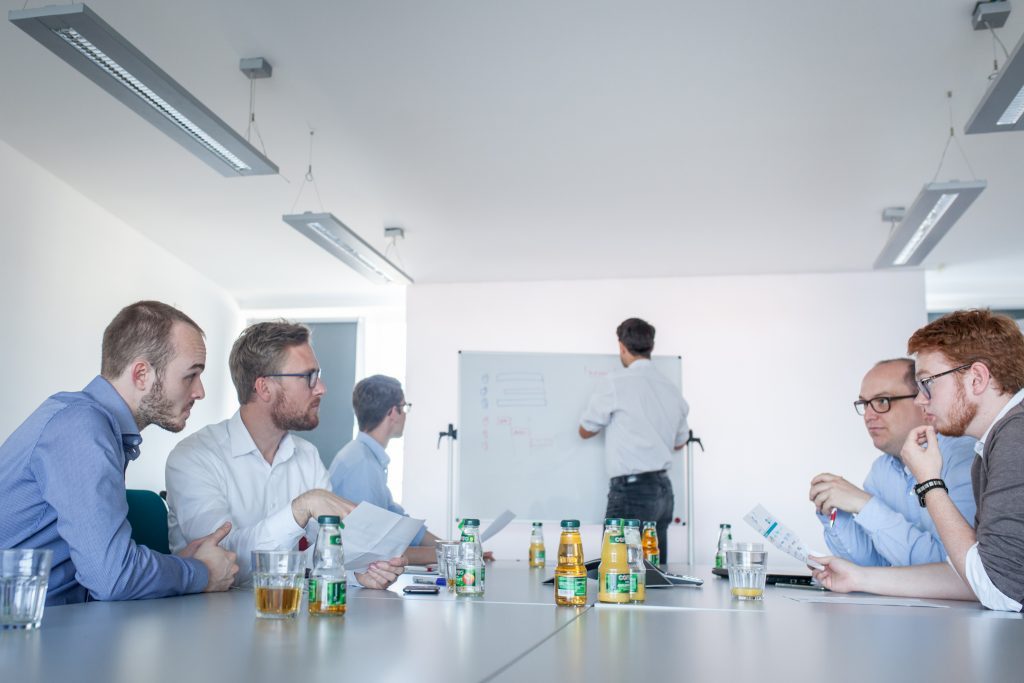In the Cologne district of Mülheim, not far from Keupstrasse with its oriental charm of doner restaurants, baklava, cafés and mosques, and next to old brick halls, concert halls and television studios, lies Carlswerk, a large former industrial area that has been transformed by the arrival of both new and established companies, restaurants and leisure facilities. It doesn't look like a place where the future of the German insurance industry will be shaped. And yet this is exactly what is happening. InsurLab Germany is based here, a platform that brings together established insurers with technology startups, InsureTechs, technology companies, and research and consulting partners to lead the digital transformation of the German insurance industry.

Andreas Becks from SAS, recently had the opportunity to talk to InsurLab Managing Director Sebastian Pitzler and Partner Manager Herbert Jansky to understand how innovation works in the German insurance industry today.
Amazon wants to sell life insurance policies and insure my household contents and new purchases. Is Alexa my new insurance broker? What does this scenario mean for the German insurance industry?

Sebastian Pitzler: Today, more than ever, the topic of digitisation and innovation is occupying the German insurance industry. This is also one of the reasons why we are known as InsurLab Germany. We are now Germany's largest industry initiative for networking startups and insurance companies. It has been clearly recognised that new possibilities arise from digitisation, both towards customers and in internal processes, for example, through automation. Technologies such as artificial intelligence, blockchain or the Internet of Things promise potential for considerable innovation, and new products and services. Insurers must adapt to changing customer demands and behaviour. In our everyday lives, we all experience products and service levels that are so completely different from what we have seen from insurance companies up to now. So there is something intertwined here: the awareness that one must become active, for digitisation is there. New forms of cooperation with startups and the willingness to work together are also emerging. This gives considerable momentum to allow us to address this issue and really rethink insurance – especially when the pressure is coming from outside, such as from Amazon, for example.
Herbert Jansky: You have to take a very close look at current developments: Does Amazon want to act as an interface between insurer and customer, e.g., as an aggregator? Or does it really want to be a risk carrier itself at some point? The internet interface is already in place, for example, via aggregators such as Check24 or a targeted online placement such as with Google AdWords – but the way Amazon will choose to play will be exciting to watch. And probably more will be tried outside Germany at the moment.
What topics are insurance companies dealing with today, especially in the context of digitisation?
Sebastian: We have conducted a survey among our member companies. The main topics are digitisation of the customer interface, artificial intelligence/predictive analytics/machine learning, blockchain and smart contracts, fraud detection and prevention, but also the Internet of Things with “disciplines” such as smart homes, connected cars and digital health.
These topics and also the disruption scenarios you mentioned are not really new. We have been discussing them for a long time. There is a perception that insurance companies react differently and may even be more cautious in innovation initiatives. InsurLab Germany is a lively exchange platform. But does it really have strategic importance for its members, or is it more of a leisure event for interested employees of insurance companies?
Sebastian: We are very focused on its strategic importance in the development of the member companies. This is for two reasons. Firstly, to keep up with the times and see what the trends and technologies are and how they can be translated into the insurance industry. We see ourselves as mediators and translators. On the other hand, we are a network platform facing these challenges together, but also enabling organisations to find exciting new partners. Many board members and decision makers of insurance companies take part in our events. That’s why we think it is very important to create very concrete opportunities for encounters where real project and innovation ideas are worked on, in the various offer formats that we have developed. We organise workshops with clearly defined next steps. We are not a “nice event” agency. We want to achieve a noticeable impact that will permanently change the insurance industry and introduce it to the subject of digitisation.
Can you describe a workshop day? What happens, and what is the result?

Herbert: In our innovation workshops, we invite startups to discuss a specific topic, e.g., digitisation of customer communication or predictive analytics and machine learning, for which SAS provided the keynote. Our goal is to develop as many concrete projects, or PoCs, as possible between insurance companies and startups. We usually have four to five startups pitching their idea, business model or technology and presenting it to insurers. After the pitches, the startups stand in different corners of the room like in a market, and the insurance representatives choose the most interesting startup, one that will provide exciting cooperation. The exact project idea will then be worked out in small working groups throughout the afternoon. To make this work better, each working group includes management consultants from our member companies, who moderate the process. At the end of the day, the working groups present the results to the other participants.
What will it take to Innovate at Scale? How will the data-driven discovery experience be enabled? Who should drive monetization opportunities? What role will skills and tools play? How will future business models be designed? Be part of our expert study, and discover better practices together with your peers. Express your interest here.
What about the sustainability of the workshops?
Herbert: Let's take our innovation workshop for digitising customer relations as an example. We put 10 possible PoCs on paper. The first follow-up project has already been commissioned and is in the final phase – an Alexa skill was developed for customer communication – and several other projects are in the ramp-up phase.
That sounds good. How do you perceive the culture of innovation and agility in the German insurance industry as a whole? Will we soon be able to experience these ideas from our own insurance companies? How do established insurance companies ensure that innovative ideas are implemented sustainably?
Herbert: InsurLab Germany was founded by the insurance industry together with politics and science in order to devote itself precisely to digitisation and innovation. The impulse came from the industry, and our supporting programme has been developed together with the members. As a core team, we implement this program and provide our own impetus. But everything we do is in close contact with the member companies.
Sebastian: The topic and the associated pressure to innovate has reached the top decision makers in the insurance industry. Yes, companies vary in terms of innovation culture and processes. But the absolute will is there to exchange ideas, cooperate and implement innovation projects. Recently I was invited as a panel moderator at the so-called Digisurance conference. The unanimous view and broad insight about various discussions and keynotes on the day were that genuine innovation arises where established companies collaborate with startups and create joint projects. Insurance companies will not be able to do it on their own. Openness and collaboration is the way forward.
Thank you very much for the interview!
This blog post was first published in German on the regional blog site Mehr Wissen.
